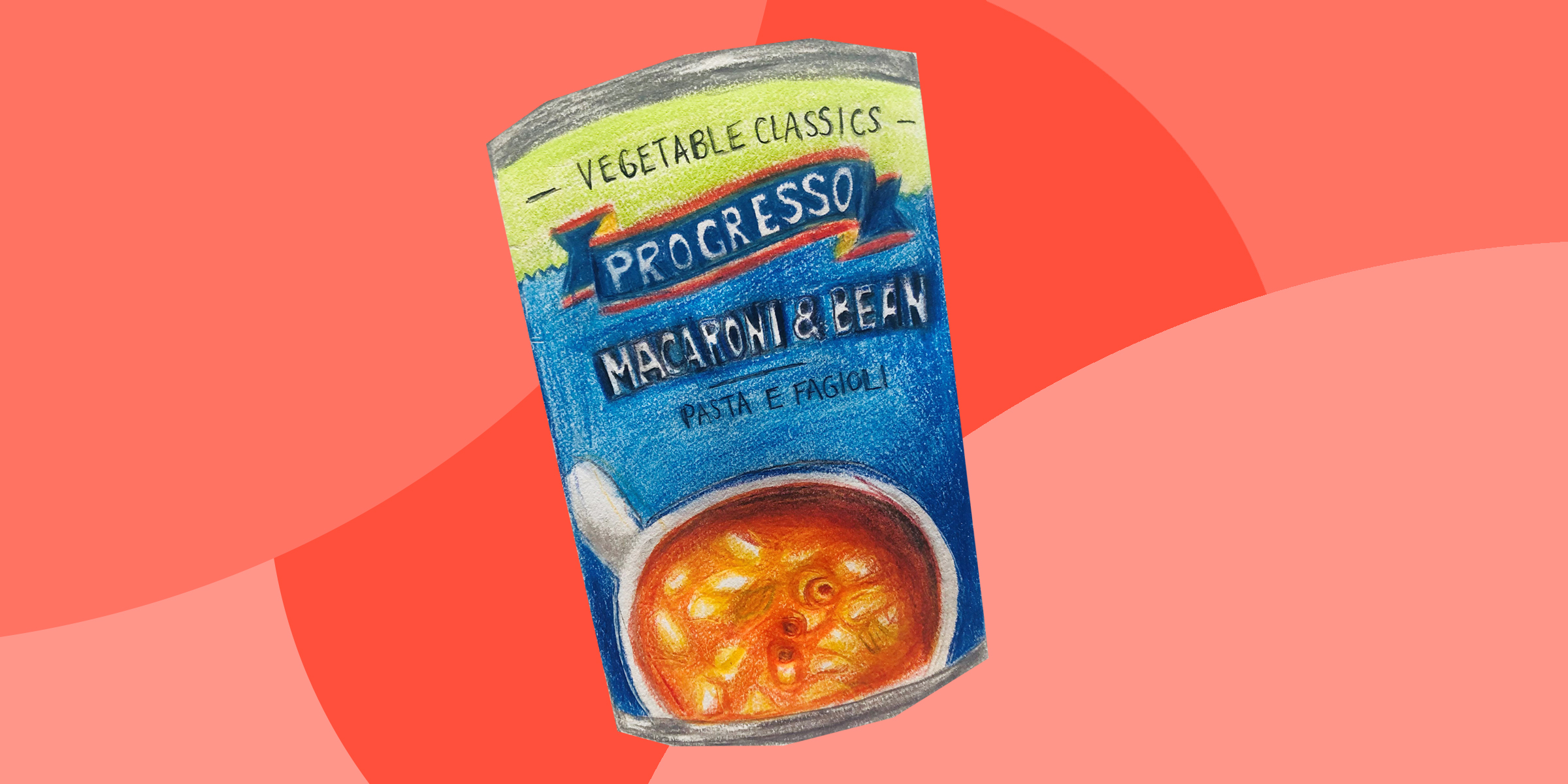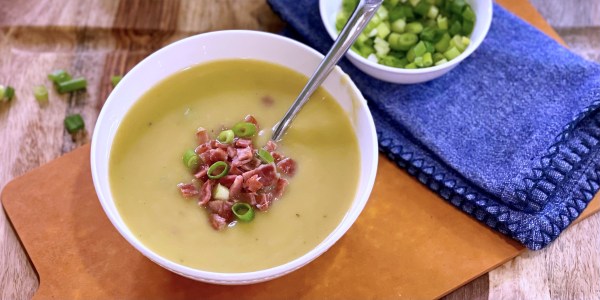Canned soup has always been a pantry staple, and now more than ever, premade canned — and boxed — soup is a good shelf-stable meal to have on hand during another winter amid COVID-19.
Soup has some pretty unique health benefits. It’s well known that when eaten as an appetizer, soup can curb hunger. In one study, people ate 20% fewer calories at their meal when served soup first. This is likely because soup is a water-rich food, which means you can eat a generous portion — and fill up — with relatively few calories.
Chicken soup, in particular, can be a therapeutic choice. Chicken soup is believed to have anti-inflammatory properties, which may help decongest your nose when you come down with a cold, since the inflammation in your nasal passages makes your nose feel stuffy. Chicken soup may also help thin your mucus so you can breathe easier. In one study, chicken soup beat both hot and cold water in thinning mucus.
Not all pre-packaged soups are healthy though, so it’s important to know what to look for. Here are some tips to help you become a better soup shopper.
How to choose the healthiest canned or boxed soups
Watch the sodium
The main drawback of packaged soup is that the sodium levels tend to be very high — and the serving sizes are a bit misleading. For example, a serving of a well-known canned chicken noodle soup has 940 mg of sodium, and while that’s already high, the amount skyrockets to 2,350 mg — more than your full daily requirement — if you eat the whole can. Though lower sodium versions are still on the high side, they’re obviously a better choice.
Pay attention to added sugars
Believe it or not, canned soup can be a surprising source of added sugar. A typical can of tomato soup, for example, contains a whopping 20 grams of added sugar — that’s equivalent to 5 teaspoons. The American Heart Association recommends that women limit their sugar consumption to six teaspoons and men to nine teaspoons a day. Considering the average American consumes 17 teaspoons a day, the last thing anyone needs is more hidden sugar in their soup. Look for soups with no or low sugar (4 grams or less).
How to make sure canned soup is healthy
It’s always a good idea to scan labels for sodium levels and added sugar. Since you’re probably doing your best to minimize your time at the grocery store (and limit contact with items on the shelves) these days, it’s a good idea to research your favorite soups online before going shopping. Most major brands post the nutrition facts for their products on their website. If you have food allergies or sensitivities, or you want to avoid certain ingredients, such as chicken or beef broth, if you’re vegetarian or vegan, it’s also a good idea to check the labels in advance.
Seek out plant-based soups
Soups that contain veggies, beans or legumes provide a wide range of beneficial vitamins, minerals and nutrients, like fiber. Seek out garden vegetable, minestrone, split pea, lentil or black bean soup to get a variety of nutrients in your meal. And remember, these soups can be enjoyed on their own as a main, or a smaller portion can be served as an appetizer or side dish.
Is bone broth healthy?
Bone broth is a stock made from simmering down animal bones, like chicken bones, along with other common stock ingredients. Bone broth has become popular because it contains collagen, which is a type of protein found in your bones and tendons. Collagen is also the main structural component that supports your skin. As you age, your collagen production slows down, and that results in wrinkled skin. Many people think that bone broth helps flood your body with collagen, and therefore, may help reduce wrinkles and contribute to healthier joints, but there isn’t enough research to back up those claims. In fact, the research that does exist doesn’t support using bone broth over other soups. One recent study concluded that bone broth is unlikely to provide a reliable source of these nutrients.
The best canned and boxed soups to take nutrition up a notch
Though a can or box of soup can certainly be an easy meal on its own, you can also toss in other ingredients you have at home to make your soup even more interesting, nutritious and filling. Here are some ideas using soups you can find on your next grocery haul:
- Add some chopped apple or pear and pumpkin seeds or slivered almonds to Imagine Foods Light In Sodium Butternut Squash Soup.
- Add spinach to Amy’s Organic Light In Sodium Lentil Soup before you heat it up, and then top with feta or parmesan cheese.
- Make a DIY soup with Pacific Foods Organic Low Sodium Vegetable Broth by tossing in frozen tortellini along with frozen spinach or kale, and then bringing the soup to a boil.
- Heat up Campbell’s Well Yes! Lightly Salted Santa Fe Vegetable Soup and top it with avocado slices and a dollop of Greek yogurt. If you want some crunch, crush a few tortilla chips on top.
And don’t forget that the plant foods in canned soup count toward your daily veggie requirements, so if you’re low on fresh veggies, have some soup at the start (or on the side) of your main meal.
Want to make your own? Try these healthy recipes:
Related:









